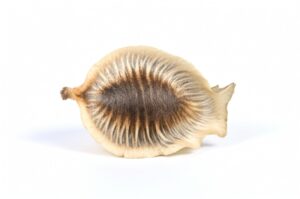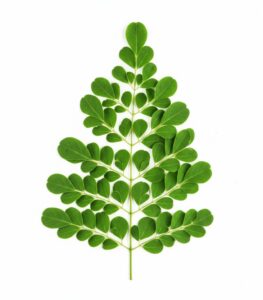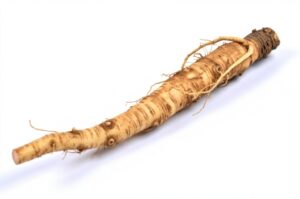Moringa Oleifera: The Miracle Tree And It’s Numerous Health Benefits
Moringa oleifera, also known as the ben oil tree, horseradish tree, or simply moringa, is a plant native to India and widely cultivated in tropical and subtropical regions around the world. Recognized for its remarkable nutritional and medicinal properties, moringa has been used for centuries in traditional medicine to treat a wide range of health conditions.
This article aims to explore in detail the benefits of this extraordinary plant, addressing its nutritional and medicinal properties, and the specific benefits of its leaves, seeds (pods), and roots, all in a clear, accessible, and search engine optimized manner.
Nutritional Properties Of Moringa Oleifera: A Treasure Trove Of Essential Nutrients
Moringa is considered a superfood due to its exceptionally rich and diverse nutritional profile. Its leaves, pods, and seeds are loaded with vitamins, minerals, proteins, essential amino acids, antioxidants, and other phytonutrients crucial for human health.
1.1. Essential Vitamins for Well-being:
-
Vitamin C (Ascorbic Acid): Powerful antioxidant that strengthens the immune system, aids in iron absorption, and the production of collagen, essential for healthy skin, blood vessels, bones, and cartilage.
-
Vitamin A (Beta-carotene): Fundamental for vision health, immune function, cell growth, and differentiation. It also acts as an antioxidant.
-
B-Complex Vitamins (B1 – Thiamine, B2 – Riboflavin, B3 – Niacin, B6 – Pyridoxine): Essential for energy metabolism, nerve function, skin health, and red blood cell production.
-
Vitamin E (Tocopherol): Important antioxidant that protects cells against damage caused by free radicals, and contributes to skin and immune system health.
-
Vitamin K (Phylloquinone): Crucial for blood clotting and bone health.
1.2. Indispensable Minerals for Bodily Functions:
-
Calcium: Essential for healthy bones and teeth, muscle contraction, nerve transmission, and blood clotting.
-
Potassium: Important for maintaining electrolyte balance, nerve function, and muscle contraction, as well as helping to regulate blood pressure.
-
Magnesium: Involved in hundreds of enzymatic reactions in the body, including energy production, muscle and nerve function, blood sugar control, and blood pressure regulation.
-
Iron: An essential component of hemoglobin, responsible for oxygen transport in the blood, and also important for immune function and energy.
-
Zinc: Fundamental for immune function, wound healing, DNA and protein synthesis, and the senses of taste and smell.
-
Phosphorus: Works with calcium for healthy bones and teeth, and plays an important role in energy metabolism.
1.3. Proteins and Essential Amino Acids:
Moringa leaves are a surprising source of complete protein, containing all nine essential amino acids that the human body cannot produce on its own. This makes it an excellent addition to the diet, especially for vegetarians and vegans.
1.4. Other Valuable Nutrients:
-
Fiber: Important for digestive health, helping to regulate bowel movements, control blood sugar levels, and promote satiety.
-
Antioxidants (Flavonoids, Polyphenols, Ascorbic Acid, Carotenoids): Protect cells against damage caused by free radicals, contributing to the prevention of chronic diseases.

Benefits of Moringa’s Nutritional Properties For Human Health:
Moringa’s rich nutritional profile offers a wide range of health benefits:
2.1. Strengthening the Immune System:
-
Combats Infections: The high concentration of vitamin C, vitamin A, zinc, and other antioxidants strengthens the body’s defenses, making it more resistant to viral, bacterial, and fungal infections.
2.2. Improving Bone Health:
-
Prevention of Osteoporosis: The calcium, magnesium, and vitamin K present in moringa are essential for the formation and maintenance of bone density, helping to prevent osteoporosis and fractures.
2.3. Increasing Energy and Combating Fatigue:
-
Optimized Energy Metabolism: B-complex vitamins help convert food into energy, combating fatigue and increasing vitality. Iron contributes to oxygen transport, preventing iron deficiency anemia.
2.4. Skin and Hair Health:
-
Radiant Skin and Strong Hair: Vitamins A and E, along with antioxidants, contribute to the health and appearance of the skin, protecting against premature aging and promoting hydration. Proteins and zinc are important for hair growth and strength.
2.5. Digestive Health:
-
Improved Bowel Function: The high amount of fiber helps regulate the intestines, preventing constipation and promoting a healthy gut microbiome.
2.6. Eye Health:
-
Vision Protection: Beta-carotene (a precursor to vitamin A) is essential for the health of the retina and helps prevent age-related vision problems such as macular degeneration.
2.7. Blood Sugar Regulation:
-
Aids in Blood Glucose Control: Some studies suggest that compounds present in moringa may help improve insulin sensitivity and regulate blood sugar levels, making it a potential ally for people with diabetes.
2.8. Cardiovascular Health:
-
Maintaining Healthy Blood Pressure: Potassium and other compounds in moringa may contribute to blood pressure regulation. Fiber also helps reduce LDL (“bad”) cholesterol.

Medicinal Properties Of Moringa Oleifera: A Natural Pharmacy
In addition to its nutritional value, moringa possesses various medicinal properties due to the presence of bioactive compounds with pharmacological activities.
3.1. Antioxidant Action:
-
Diseases Combated: The rich antioxidants present in moringa, such as flavonoids, polyphenols, and ascorbic acid, combat oxidative stress caused by free radicals. Oxidative stress is associated with various chronic diseases, including heart disease, cancer, diabetes, and neurodegenerative diseases (such as Alzheimer’s and Parkinson’s).
3.2. Anti-inflammatory Action:
-
Diseases Combated: Compounds such as isothiocyanates present in moringa have demonstrated anti-inflammatory properties. This action may be beneficial in the treatment of chronic inflammatory diseases, such as arthritis, autoimmune diseases (such as lupus and multiple sclerosis), and asthma.
3.3. Antimicrobial and Antifungal Action:
-
Diseases Combated: Studies indicate that moringa extracts have antimicrobial activity against various bacteria (including Helicobacter pylori) and fungi (such as Candida albicans), potentially aiding in the treatment of infections.
3.4. Hypoglycemic Action:
-
Diseases Combated: Certain compounds in moringa have shown the ability to reduce blood glucose levels, making it a potential adjunct in the treatment of type 2 diabetes.
3.5. Hypolipidemic Action:
-
Diseases Combated: Some research suggests that moringa can help reduce total cholesterol, LDL (“bad”) cholesterol, and triglyceride levels, contributing to the prevention and treatment of cardiovascular diseases such as atherosclerosis and hypertension.
3.6. Hepatoprotective Action:
-
Diseases Combated: Studies in animals have shown that moringa can protect the liver against damage caused by toxins and medications, potentially being useful in the treatment of liver diseases.
3.7. Neuroprotective Action:
-
Diseases Combated: The antioxidants and other compounds in moringa may protect brain cells against oxidative and inflammatory damage, suggesting a potential benefit in the prevention and treatment of neurodegenerative diseases.

. Benefits Of Moringa Leaves, Seeds (Pods), And Roots:
Each part of the moringa plant offers specific benefits:
4.1. Moringa Leaves:
-
Concentrated Nutritional Richness: The leaves are the most commonly used part of the plant and concentrate most of the vitamins, minerals, proteins, and antioxidants.
-
Benefits: Strengthening the immune system, increasing energy, improving skin and hair health, antioxidant and anti-inflammatory action.
-
Forms of Consumption: They can be eaten raw in salads, cooked in soups and stir-fries, or in powder form added to juices, smoothies, and other preparations. Moringa leaf tea is also popular.
4.2. Moringa Seeds (Pods):
-
Source of Protein and Rich Oil: Young pods are eaten as a vegetable, while mature seeds are rich in protein and an oil with beneficial properties.
-
Benefits: The seeds may have antimicrobial properties and help in water purification. Moringa oil is rich in antioxidants and beneficial fatty acids for skin and hair.
-
Forms of Consumption: Young pods can be cooked. Mature seeds can be roasted and eaten, or pressed to extract the oil.
4.3. Moringa Roots:
-
Potent Bioactive Compounds: The roots contain bioactive compounds with significant medicinal properties.
-
Benefits: Traditionally used for their digestive, anti-inflammatory, and diuretic properties.
-
Forms of Consumption: Generally consumed in infusions or as a spice. It is important to consume the roots in moderation, as they contain alkaloids that can be toxic in large quantities.
Nutrient Table of Moringa Leaves (per 100g):
| Nutrient | Approximate Amount | Unit |
| Protein | 27 | g |
| Total Fat | 2 | g |
| Carbohydrates | 38 | g |
| Dietary Fiber | 19 | g |
| Calcium | 2003 | mg |
| Iron | 28 | mg |
| Potassium | 1324 | mg |
| Magnesium | 368 | mg |
| Vitamin C | 51.7 | mg |
| Vitamin A | 7564 | IU |
| Vitamin E | 113 | mg |
| B Vitamins | Various |
Note: Nutritional values may vary slightly depending on the plant variety, growing conditions, and analysis method.
Frequently Asked Questions About Moringa Oleifera:
Q: Does moringa have side effects?
A: In general, moringa is considered safe for most people when consumed in moderate amounts. However, excessive consumption may cause mild digestive issues. The roots should be consumed with caution due to the presence of alkaloids. Pregnant and breastfeeding women should consult a doctor before regularly consuming moringa.
Q: What is the best way to consume moringa?
A: There is no single “best” way. The leaves can be eaten fresh, cooked, or in powder form. The seeds can be roasted. The oil can be used topically or in cooking. The choice depends on personal preference and the desired benefits.
Q: Where can I find moringa?
A: Moringa can be found in health food stores, farmers’ markets, and online, usually in the form of dried leaves, powder, capsules, or oil.
Q: Does moringa interact with medications?
A: Yes, moringa may interact with some medications, such as anticoagulants and diabetes medications. It is essential to consult a doctor before starting regular moringa consumption, especially if you are taking any medication.
Q: What is the recommended dose of moringa?
A: There is no established standard dose. Doses vary depending on the form of consumption and the intended purpose. It is advisable to start with small doses and observe the body’s response. Consulting a healthcare professional is always the best option.
End Conclusion:
Moringa oleifera is truly a miracle tree, offering an impressive arsenal of nutrients and bioactive compounds with numerous benefits for human health. Its nutritional properties strengthen the body from the inside out, while its medicinal properties show potential in the fight and prevention of various diseases.
Incorporating moringa into a balanced diet and a healthy lifestyle can be a valuable strategy for promoting overall well-being. However, it is always important to seek guidance from a healthcare professional before starting regular consumption, especially in case of pre-existing conditions or medication use.
Read other articles on our Website.
